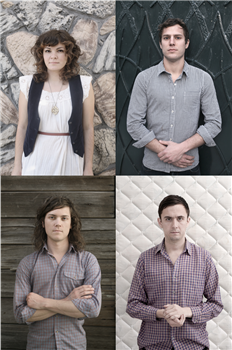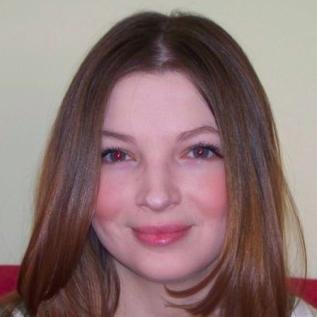
When did you decide to make a career/focus of music?
Natalia: I begged my parents for piano lessons at age six, and began singing in musicals and performances at age 8. In high school, I started writing my own music, and recording on old tape four-tracks and teaching myself guitar, so playing music was always just something that I did. It was only a year out of college, working as an admin assistant, and faced with the prospect of pursuing some sort of "real" career, or dying in a desk chair that I realized that music had been the major constant in my life since childhood. I've always gone through lots of different interests, and music is the only one that I have stayed deeply connected to. Nothing else made me feel as fulfilled as when I was writing a new song, or playing with my band. I also started to realize how unhappy I felt when I wasn't able to play. So it wasn't so much a choice, but a realization. My relationship to music was deeper than anything else in my life, it had been a way of coping through so many difficult moments, and it had survived so many transitions. I think I quit my job about a month later and started to pursue music full time.
What’s the best gig you ever played?
Michael: I really enjoyed our recent Noise Pop show at the Independent with Wye Oak. We played a bunch of songs from our new record and the other bands were great. It's hard to choose a favorite but that one stands out. It always feels like an honor to have an appreciative audience. Weirdest show? Playing a Tequila fueled bar in Juarez, Mexico with Thee Oh Sees.
There’s been a lot of talk recently about what being an “indie” artist really means today. Some say the term is becoming obsolete. What does “indie” mean to you, and do you think there will be a different word we use in the next 10 years?
Michael: "Indie" as a sonic descriptor has become irrelevant. In the early 90's the term conjured a particular aesthetic and philosophy. Like most artistic movements "indie" has been commoditized as a marketing tool. Now "indie" is about as a vague a term as "rock". Ironically as the music industry continues to struggle, most artists become "indie" through the absence of money in the music industry. By choice or necessity bands are returning to DIY philosophies. You have to truly love what you are doing to commit to your music. The days of massive signing bonuses are almost entirely gone. Now bands have to work really hard at every level. So in a sense it has come full circle since "indie" was once an intentional decision to circumvent mainstream options. Constant touring, direct communication with your audience, passionate and creative songwriting. These were choices at one point but now it seems obligatory. As for the longevity of the term "indie" it's hard to say. Micro genres come and go like cloud patterns. Who's to say what term will be tossed around next? I just hope music retains an element of tangible instruments.
What’s your favorite way/tool/site for you to interact with your fans in the digital age? Do you recommend anything to other artists?
Natalia: I like Bandcamp as a way to showcase our music. It's very clean and elegant, and really easy to manage. For interaction though, Facebook reigns supreme, because so many people are already on it. I think we get the most response to posts and messages on there, and it's a great way to let your fans know about upcoming shows.
What’s your next big gig coming up? When/Where?
Michael: We're playing Broke Ass Stuart's party at Public Works in San Francisco on May 17th. I'm happy to announce we just tracked our new record, which will be out later this year. It's a great leap forward for the band and we're all really excited to share it.
Check out more on Social Studies here.







